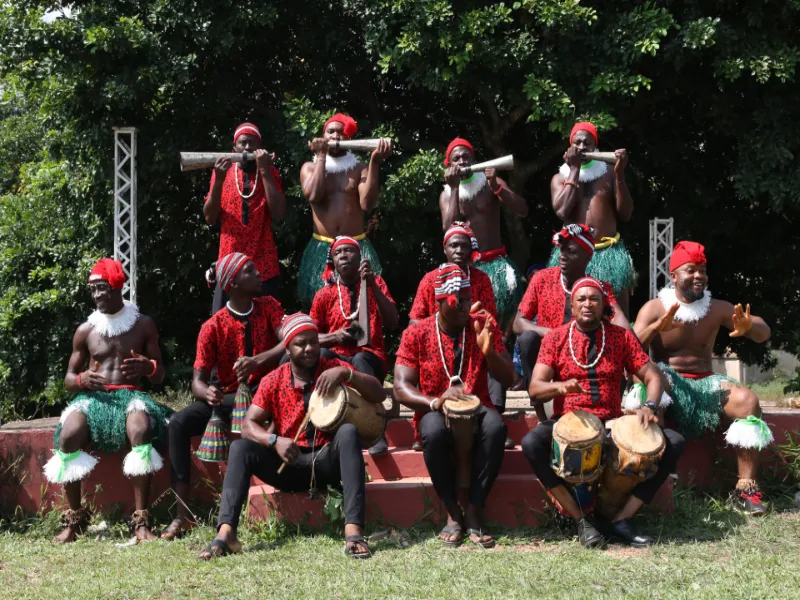The Omabe Festival is a revered cultural event celebrated every five years by the Mba Waawa community in the Nsukka region, Enugu-Ezike, Enugu State, Nigeria. Deeply rooted in tradition, the festival is considered a spiritual and communal treasure, especially among the Imufu people.
Having existed for several centuries, the Omabe Festival is seen as a time of purification and spiritual cleansing. It is believed that the masquerade bearers serve as intermediaries between the human and spiritual realms. When the masquerades appear—often accompanied by fire—they are thought to purge the community of evil, both physical and spiritual.
The Imufu community is known to have a rich array of masquerades, with over 600 believed to exist. Notable among them are Eshiwe, Obele Monwu, Oshagenyi, Eji, Mgbedike, Mukwu Monwu, Ajulaka, Agbe-Eji, Ajija, and Agelle. Each masquerade plays a unique role in the festival, carrying distinct symbols, behaviors, and spiritual significance.
The Festivity
The festival begins early, often around 5 a.m., with the appearance of the smaller masquerades. These early performances set the tone for the day, building anticipation for the larger and more powerful masquerades. As the day progresses, the streets become filled with energetic displays, acrobatics, dances, and magical feats. These performances captivate onlookers and mark the long-awaited return of the Omabe celebration.
By noon, the more fearsome and spiritually charged masquerades emerge. These are believed to be influenced by certain spirits and can sometimes become aggressive. However, they are often accompanied by more temperate masquerades to help guide their movement and ensure the safety of the crowd.
Among the larger masquerades, Mgbedike stands out for its striking appearance. Adorned with colorful traditional attire, beads, and animal skins, it commands attention and reverence. As the masquerades parade through the community, vibrant sounds of drums, gongs, flutes, and singing echo from all directions, creating a powerful sensory experience. The masquerades eventually proceed to the home of the eldest man in the community to pay homage, signifying respect for ancestral authority and tradition.
Spiritual Significance
In Imufu culture, masquerades are regarded as spirits. Following the festival, they are believed to remain in the community for an entire year, dwelling among the people before returning to the spirit world. This period is seen as a time when ancestors live among the living, bringing peace, unity, and blessings to the community.
Importantly, women are not permitted to approach the masquerades, as they are considered to possess mystical powers that require distance and reverence.
